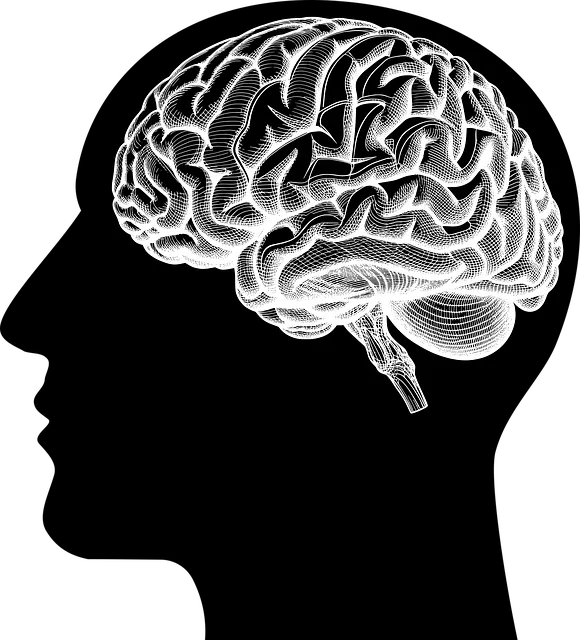The Kaiser Permanente mental health facility in Northglenn leverages comprehensive risk assessment, evidence-based practices, and holistic wellness strategies for optimal patient care. Through integrating journaling, awareness, and specialized programs like Mental Wellness Coaching, they proactively address patient challenges. Their robust mental health policy analysis includes stress management, self-care, and staff resilience building to mitigate risks like secondary trauma. By focusing on continuous improvement through case reviews and adopting evidence-based strategies, the facility maintains a dynamic learning environment and high industry standards.
Mental health professionals constantly face complex challenges, requiring robust risk assessment strategies. This article delves into the critical aspect of risk management within mental health settings, specifically exploring practices at Kaiser Permanente Northglenn, a leading mental health facility. We’ll examine understanding risk assessment, identifying potential risks, and implementing effective strategies to ensure patient safety. Additionally, we’ll discuss continuous evaluation as a key component for fostering a culture of safe practice at mental health facilities like Kaiser Permanente Northglenn.
- Understanding Risk Assessment in Mental Health Settings
- The Role of Kaiser Permanente Northglenn in Mental Health Care
- Identifying Potential Risks and Hazards
- Implementing Effective Risk Management Strategies
- Continuous Evaluation and Improvement for Safe Practice
Understanding Risk Assessment in Mental Health Settings

In the context of mental health care, risk assessment is a critical component in ensuring patient safety and well-being, especially within facilities like Kaiser Permanente Northglenn. It involves a systematic process to identify and evaluate potential risks associated with individuals seeking treatment at mental health facilities. This comprehensive approach aims to provide tailored support and interventions to mitigate risks before they escalate. By integrating mental wellness journaling and mental health awareness as guiding principles, professionals can proactively address the unique challenges faced by their patients.
The Risk Assessment for Mental Health Professionals involves careful consideration of various factors such as past traumatic experiences, current psychological states, substance abuse history, and environmental influences. This process equips practitioners with valuable insights to develop personalized care plans. Through regular risk assessments, mental health professionals at Kaiser Permanente Northglenn can offer proactive guidance, ensuring that patients receive the necessary support throughout their journey towards improved mental health awareness and overall wellness.
The Role of Kaiser Permanente Northglenn in Mental Health Care

Kaiser Permanente Northglenn plays a pivotal role in providing comprehensive mental health care services to its community. As a leading healthcare organization, they prioritize patient well-being and offer specialized programs tailored to diverse mental health needs. The facility’s dedicated team of professionals ensures that individuals receive evidence-based treatments, fostering both short-term relief and long-lasting mental wellness.
Their commitment extends beyond clinical care, focusing on holistic well-being. Kaiser Permanente encourages the development of self-care routines for better mental health and promotes communication strategies to enhance patient support systems. Additionally, they invest in innovative programs like mental wellness coaching, recognizing its potential to revolutionize how individuals manage their mental health journeys.
Identifying Potential Risks and Hazards

Identifying potential risks and hazards is a critical step in ensuring the safety and well-being of mental health professionals at Kaiser Permanente’s Northglenn facility. Like any workplace, mental health settings present unique challenges that demand careful consideration. These risks can stem from various sources, including high-stress patient interactions, exposure to traumatic narratives, and the potential for secondary trauma among staff.
At the Kaiser Permanente mental health facility in Northglenn, a comprehensive Mental Health Policy Analysis and Advocacy program should be implemented to address these concerns. This involves regular training on stress management, self-care practices, and resilience building for all staff. Additionally, fostering an open dialogue about mental wellness through coaching programs can help professionals recognize their own boundaries and those of their colleagues, ultimately creating a supportive environment that prioritizes both Mental Wellness and effective patient care.
Implementing Effective Risk Management Strategies

At a Kaiser Permanente mental health facility in Northglenn, effective risk management is paramount to ensuring patient safety and well-being. Implementing robust strategies involves a multifaceted approach that combines policy, training, and individual skillsets. One key strategy is integrating Social Skills Training into the professional development curriculum for all staff, fostering better communication and understanding among patients, which significantly minimizes potential risks associated with miscommunication or misunderstanding.
Moreover, Mental Health Policy Analysis and Advocacy plays a crucial role in identifying and mitigating systemic risks. By staying abreast of evolving mental health policies and advocating for patient-centric practices, the facility can ensure that its services align with best practices and regulatory standards. Enhancing Emotional Intelligence among staff further strengthens risk management by fostering empathy, reducing burnout, and promoting healthier interactions with patients, ultimately contributing to a safer and more supportive environment at the Kaiser Permanente mental health facility in Northglenn.
Continuous Evaluation and Improvement for Safe Practice

At the Kaiser Permanente mental health facility in Northglenn, continuous evaluation and improvement are integral to ensuring safe practice. Regular reviews of clinical cases and patient outcomes allow professionals to identify areas for enhancement and implement evidence-based strategies. This proactive approach leverages best practices from both local and national resources, such as the Crisis Intervention Guidance and Social Skills Training programs, which are integrated into the facility’s risk management planning for mental health professionals.
By fostering a culture of continuous learning, the Northglenn mental health facility promotes a dynamic environment where professionals stay abreast of emerging research and methodologies. This commitment to improvement not only enhances patient care but also contributes to the overall resilience of the practice, equipping them to effectively navigate complex situations and deliver high-quality services in line with industry standards.
Mental health professionals play a crucial role in helping individuals navigate complex emotional landscapes, making it essential to implement robust risk assessment strategies within facilities like Kaiser Permanente Northglenn. By understanding and identifying potential risks, such as patient self-harm or interprofessional conflicts, the mental health team at this Kaiser Permanente facility can employ effective management tactics. Continuous evaluation and a commitment to improvement ensure that practices remain safe and evidence-based, fostering an environment where patients receive the highest level of care. Integrating risk assessment into the fabric of mental health services at Kaiser Permanente Northglenn is a testament to their dedication to patient well-being and clinical excellence within this dynamic healthcare setting.






